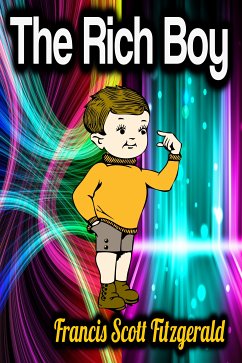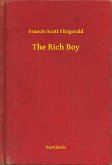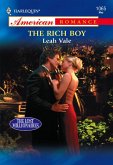The Rich Boy - Francis Scott Fitzgerald - Fitzgerald's short story "The Rich Boy" (like his novel The Great Gatsby) utilizes an outside narrator to tell the story of a wealthy protagonist in a sympathetic but still somewhat distanced way. Here the protagonist is Anson Hunter, a well-to-do young New Yorker, who would seem to have the whole world ahead of him and the streets paved in gold. By his early twenties, he has found his ideal woman as well: the exquisite -- and very rich -- Paula Legendre. On the surface, Paula would not seem to be the type of girl that would exert such a pull on Anson. Anson seems to have a lot of oats to sow, and Fitzgerald describes Paula as being "conservative and rather proper." But he is, nonetheless, obsessed by her, not because she represents the money he wants -- after all, he already has enough of his own -- but because she represents the social system that justifies his existence. In his world, responsible older men (like his uncle Robert) hold the reins of government and business; chaste and proper women (like Paula and her mother) maintain the rules of propriety and etiquette; and, until they get old enough to assume the mantle of responsible older manhood, playboys like Anson play. That is all Anson thinks he is doing right now. Just as he sees in himself the undeveloped kernel of a future leader, he sees in Paula the kernel of a future society matron. He thinks they would make a good pair. What he doesn't realize, however, is that his virtually unlimited wealth has within it the power to corrupt him, and it's already doing a good job. His first problem is that he sees himself as superior. He carries himself that way; Fitzgerald says that ". . . He had a confident charm and a certain brusque style, and the upper-class men who passed him on the street knew without being told that he was a rich boy and had gone to one of the best schools. . . . Anson accepted without reservation the world of high finance and high extravagance, of divorce and dissipation, of snobbery and of privilege."
Dieser Download kann aus rechtlichen Gründen nur mit Rechnungsadresse in A, B, BG, CY, CZ, D, DK, EW, E, FIN, F, GR, H, IRL, I, LT, L, LR, M, NL, PL, P, R, S, SLO, SK ausgeliefert werden.









